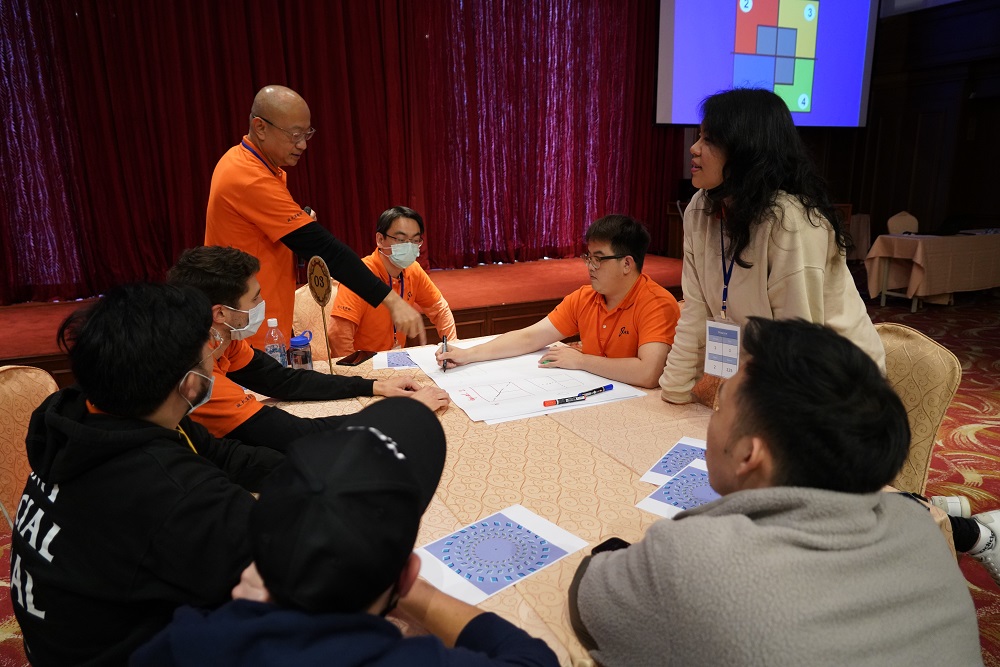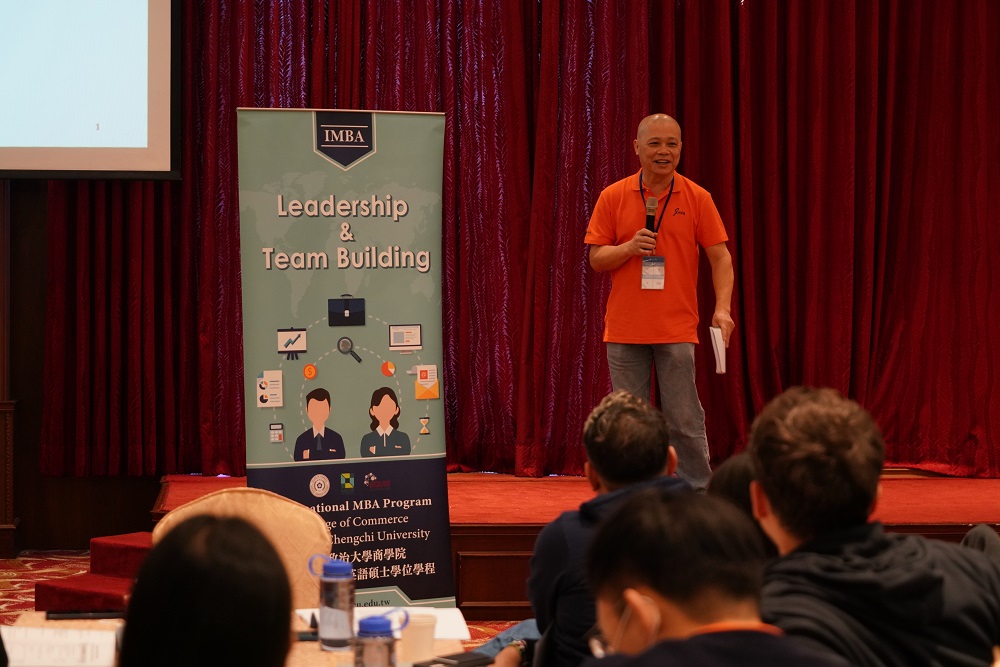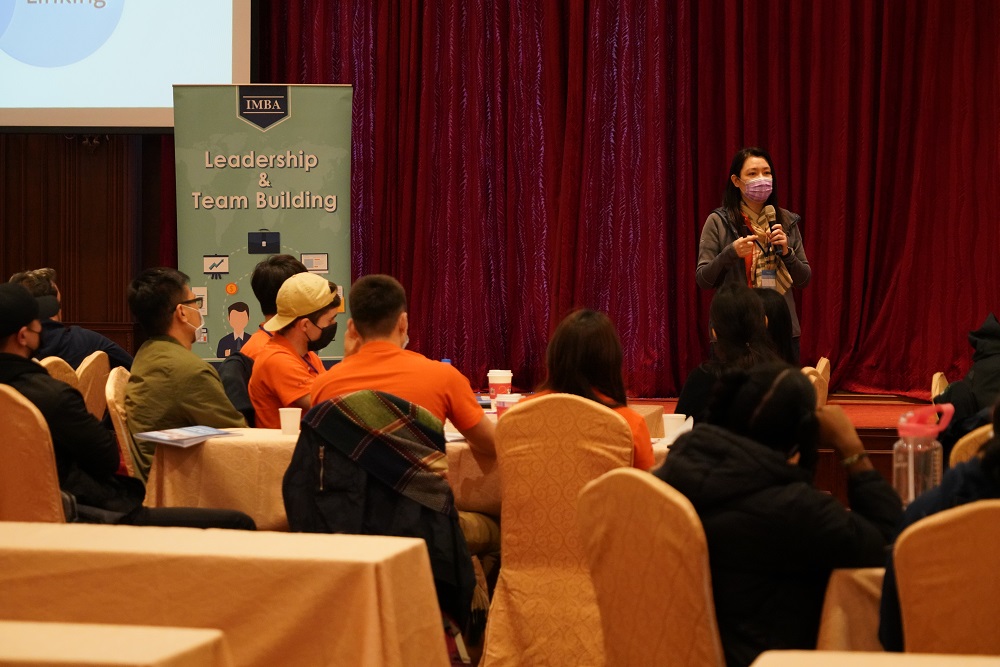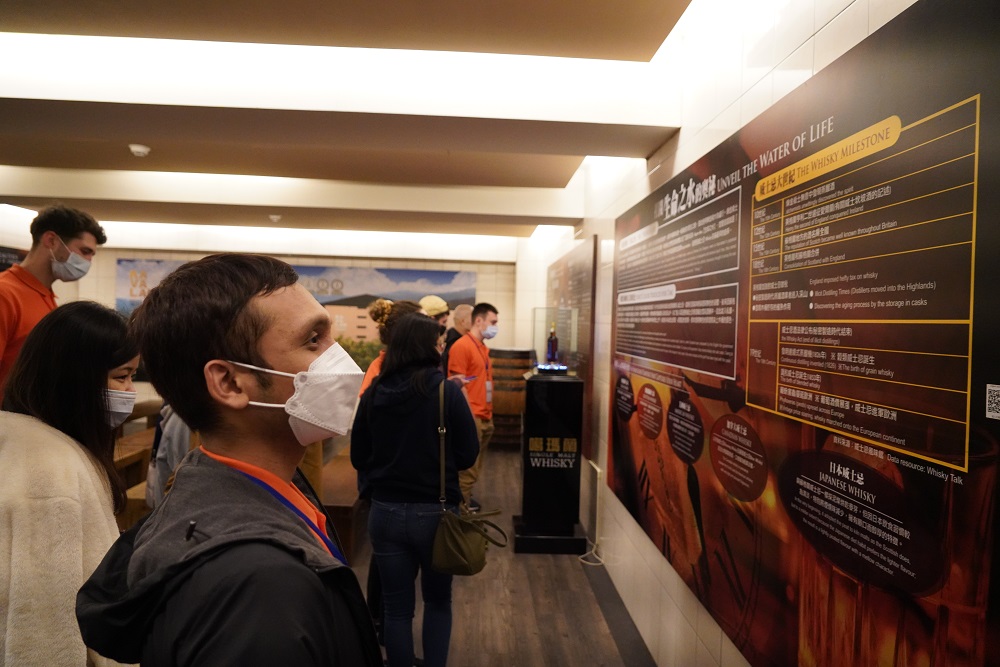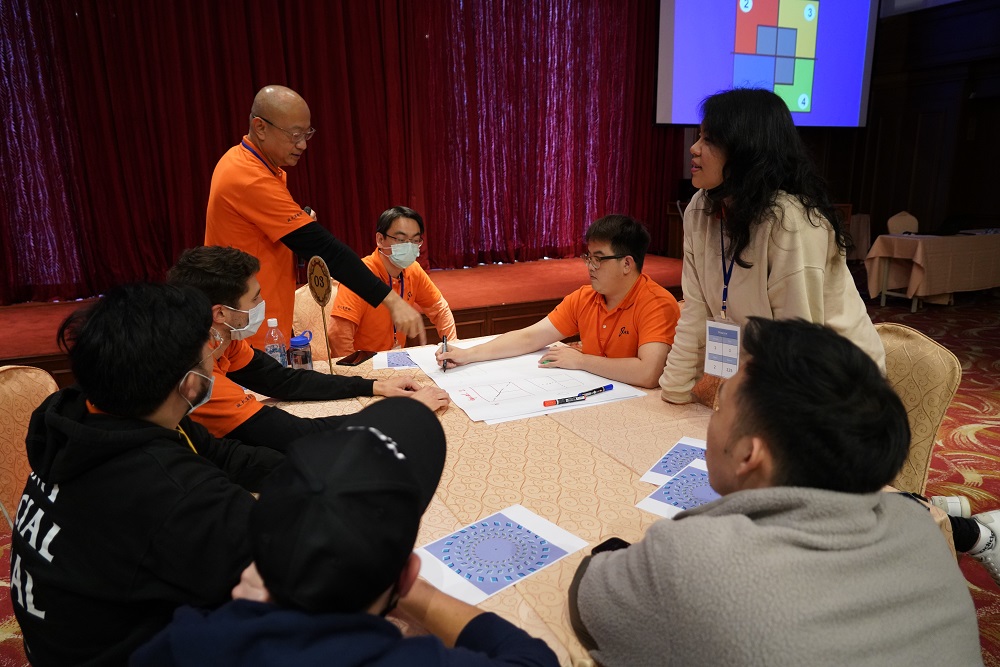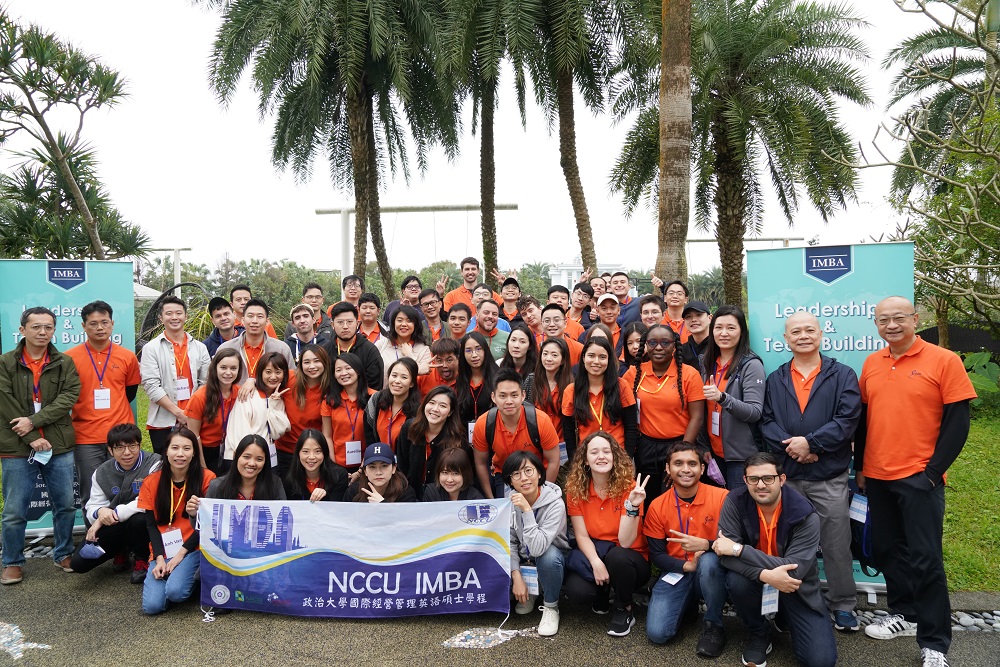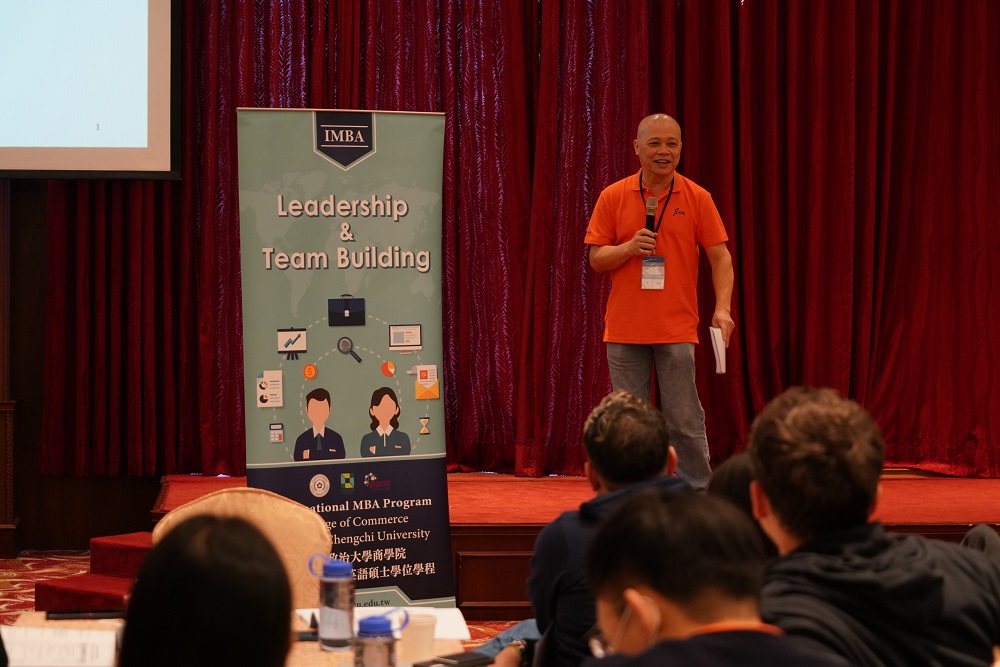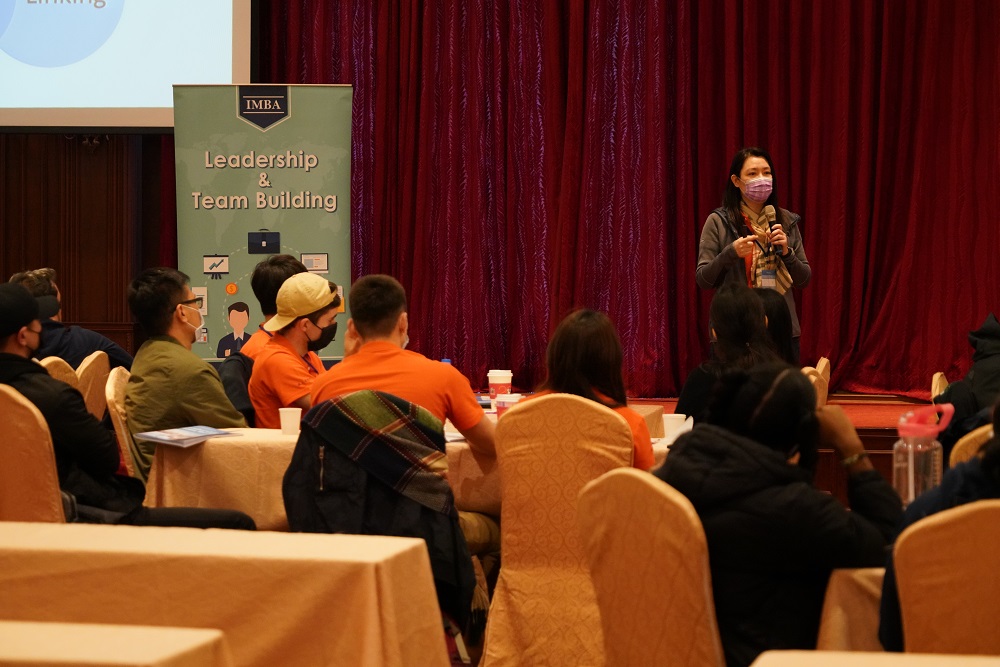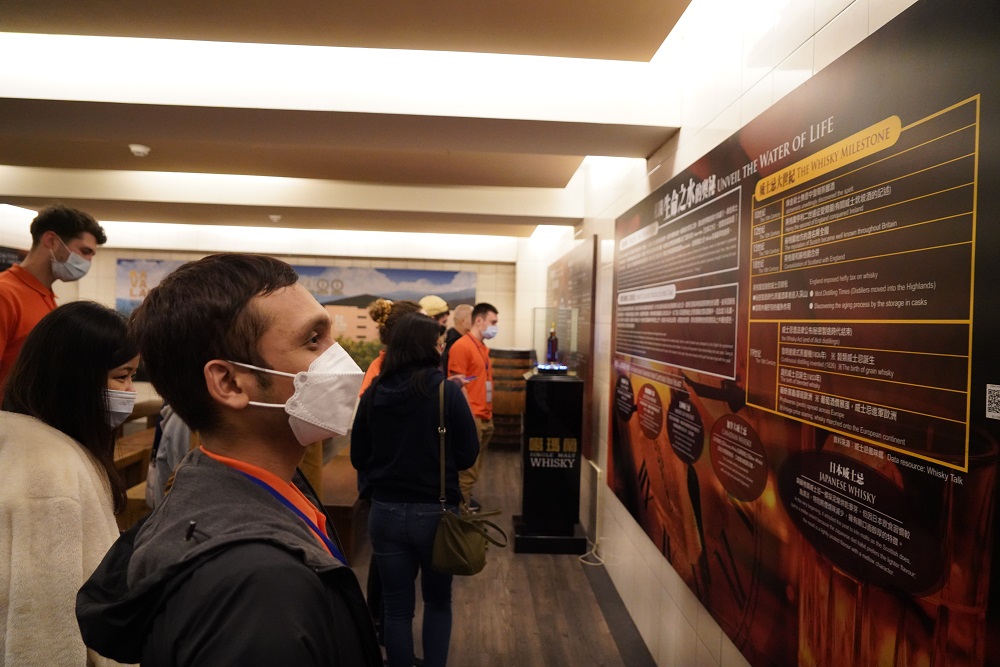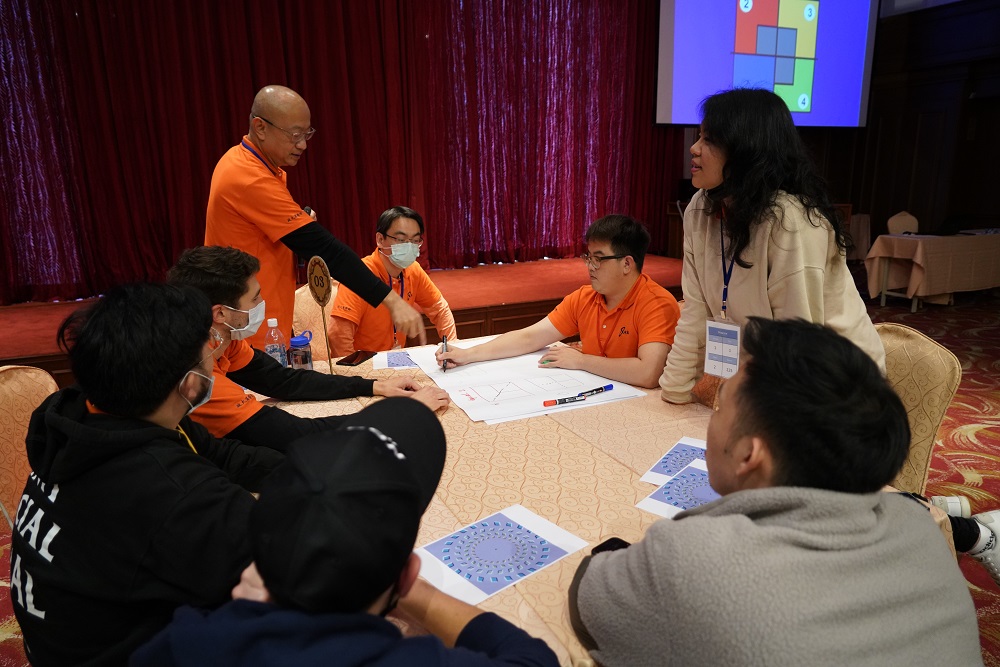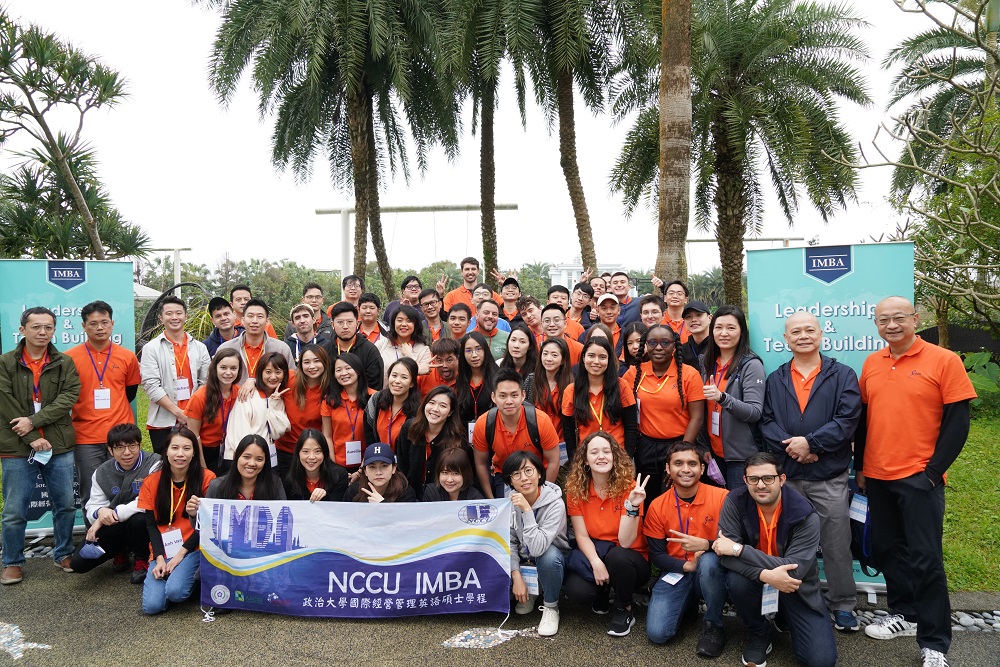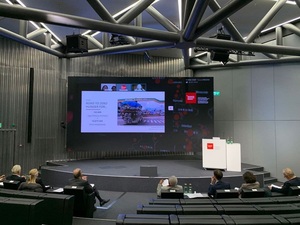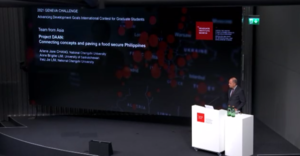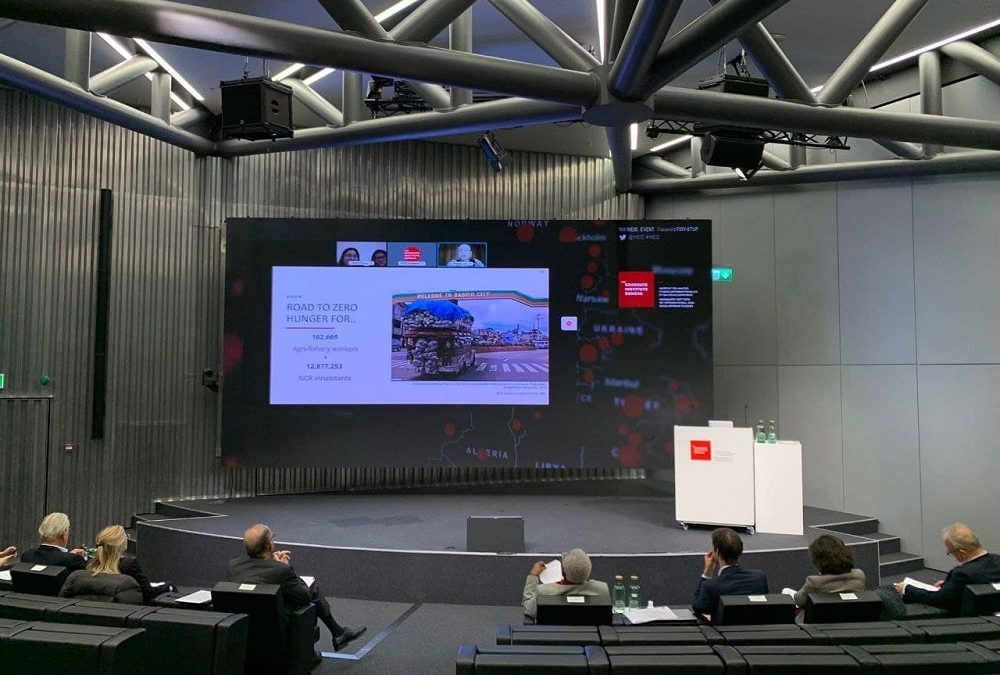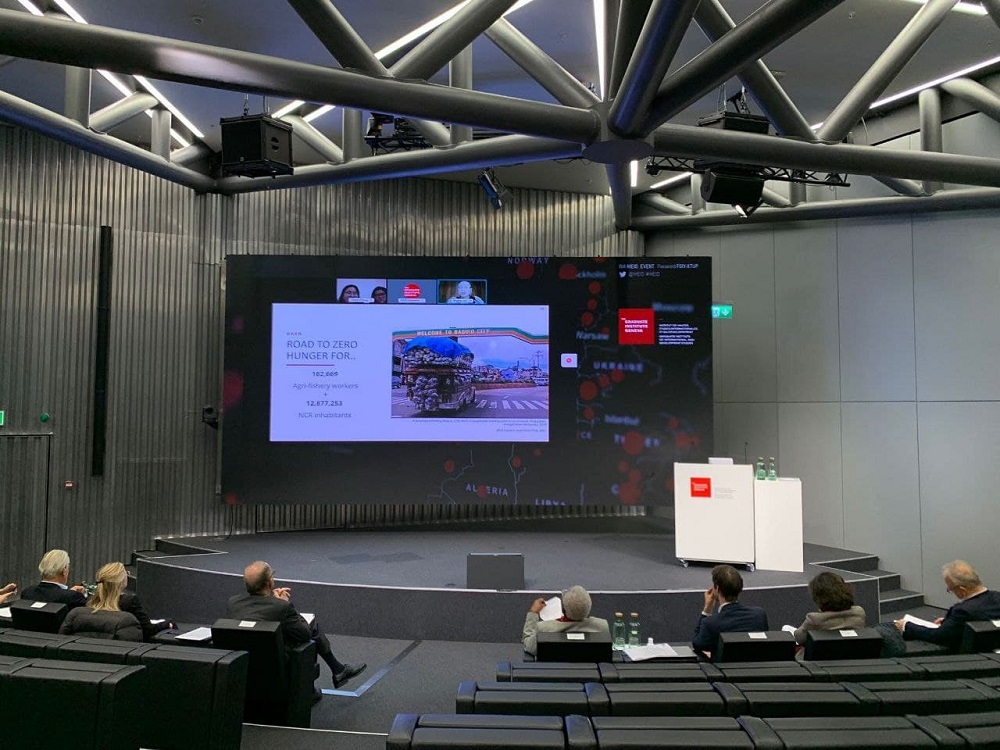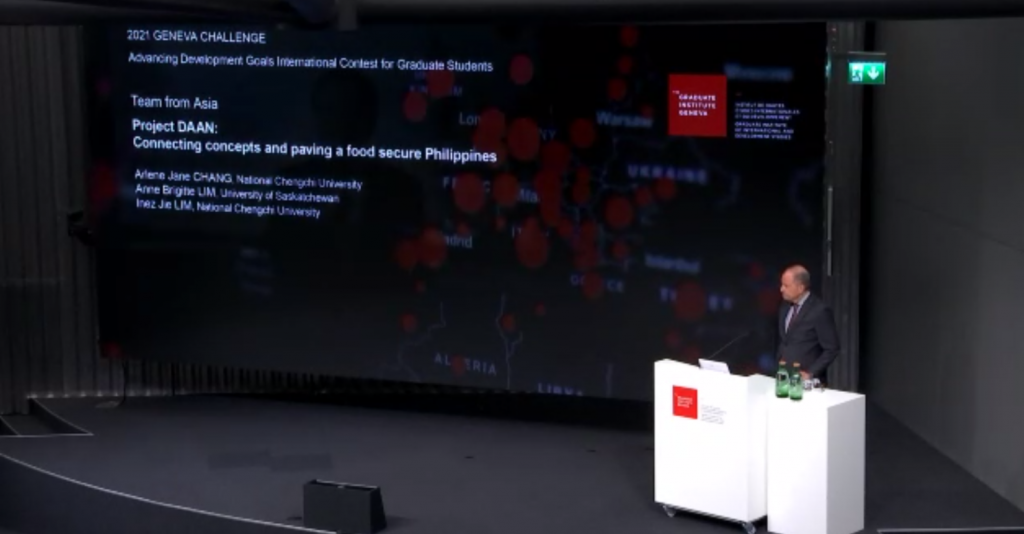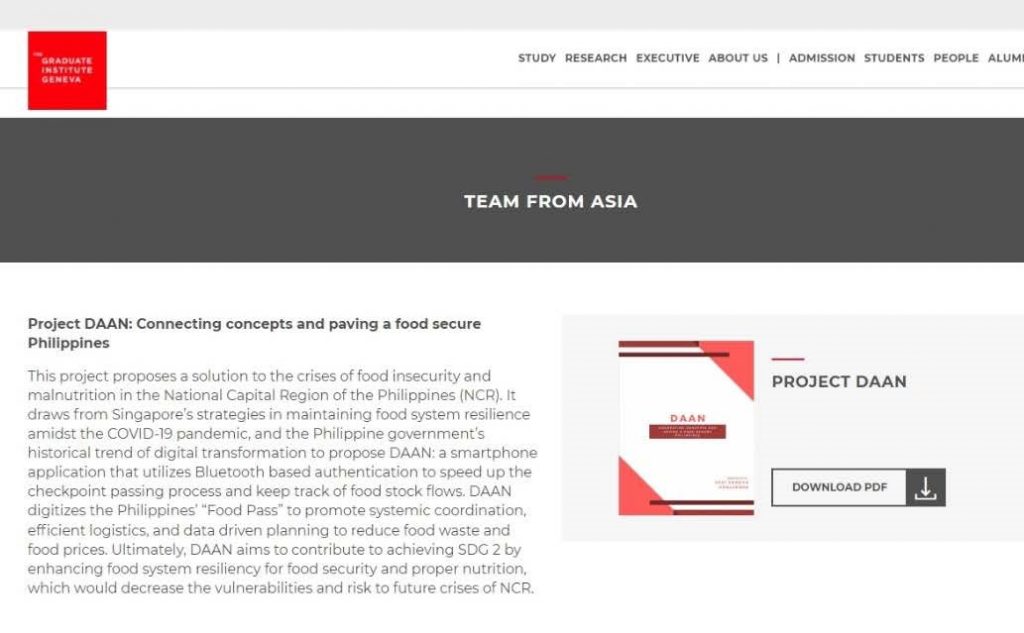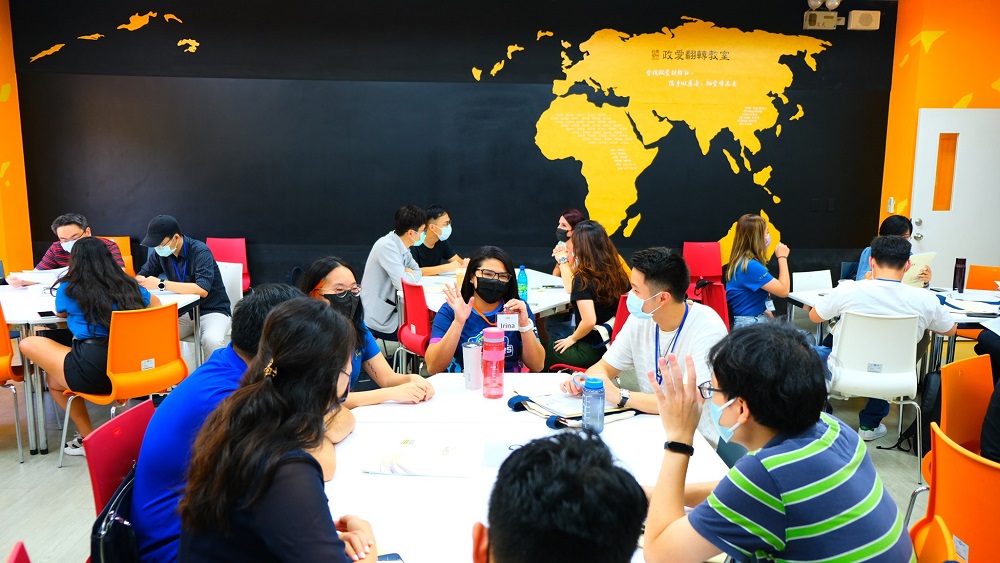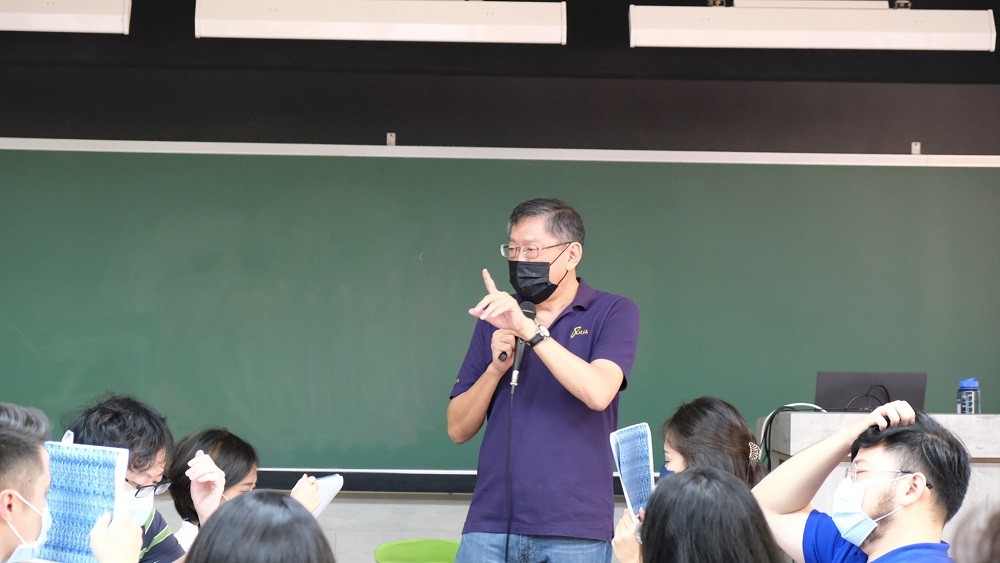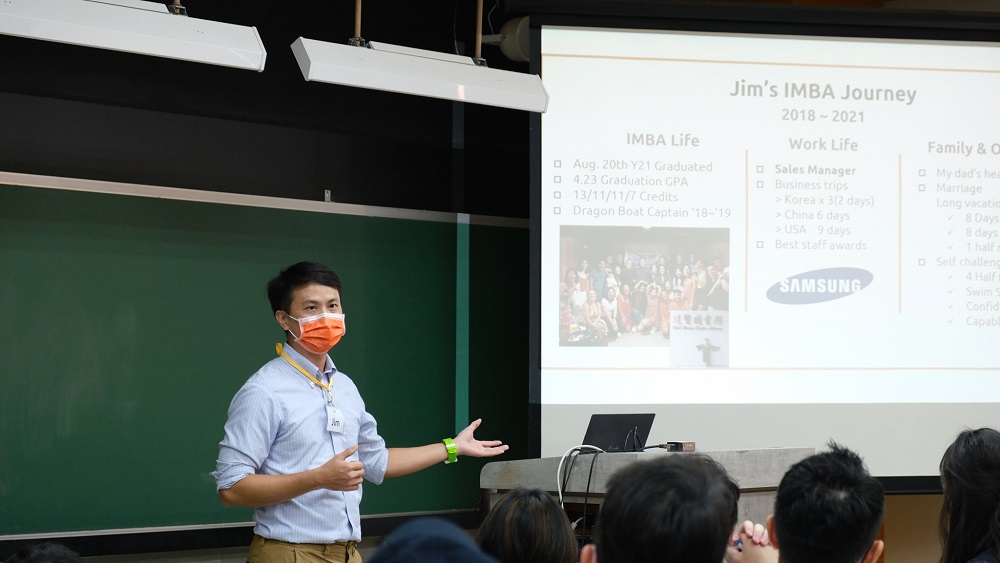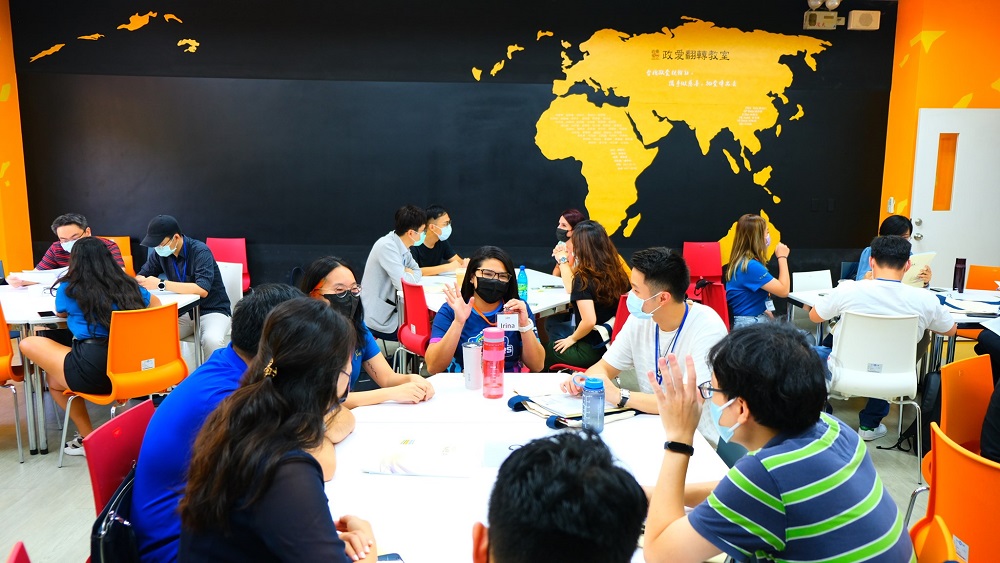Later that morning, the new students proceeded to take a group picture that will remind them of the day they joined the IMBA family. Furthermore, they received two short lectures on behalf of IMBA Administration representatives Ms. Li-Chi Ho and Ms. Jasmine Lu. These were related to the facilities around campus, the online and offline resources offered by NCCU and IMBA, career advice services, and much more useful information that will help students solve any frequently asked-for issue.
Before lunch, the class received Alumni Jim Lai, who shared an inspiring message with the new students related to how to manage work, life, and studies. Followed by Jim, student council president, Holly Chen, along with student council members shared important information related to future networking activities, school facilities, and information of interest for new students. Along with them, club leaders Irina Aguilar and Cinny Huang, presented about the Dragon Boat Club and the Oath Club. In their speech they persuaded new students to join their activities and be part of their teams.
During lunchtime, new students were joined by 2nd-year students and alumni to share a meal together, connect, and answer any questions they may have. In the words of 2020 graduate, Paul Huh, “it is inspiring to see them all so happy for this new challenge that it feels as though it was yesterday, we were in their shoes.”
Lunchtime was followed by a small reception at the IMBA Student Lounge, where students can study, relax, and meet in a casual manner. At the reception, alumni and 2nd year students shared some advice on how to navigate the program and painting a picture of how the new students’ future will look like.
On behalf of all IMBA family members, we are all excited to receive a new batch of talented professionals into our program and wish them all a fruitful IMBA experience!
